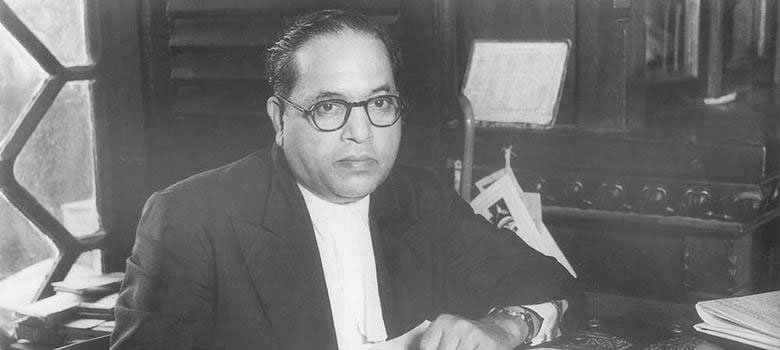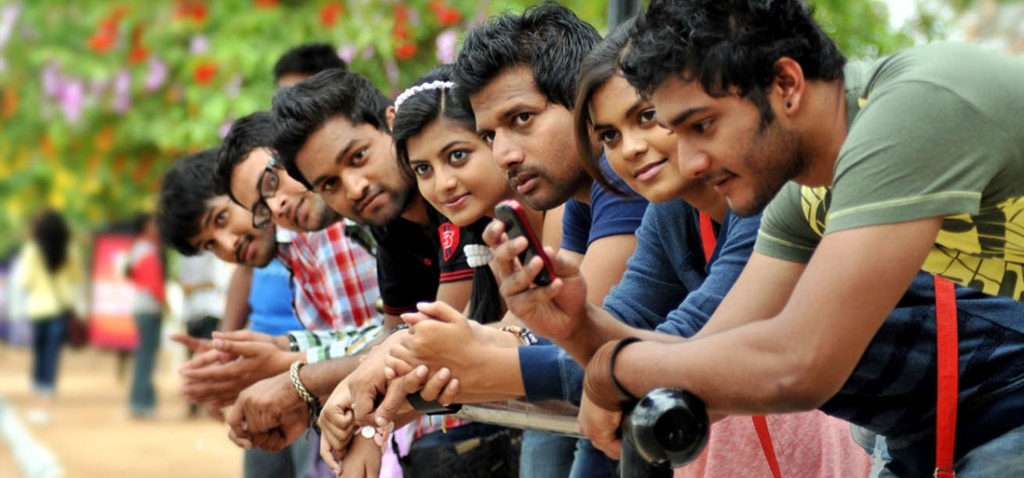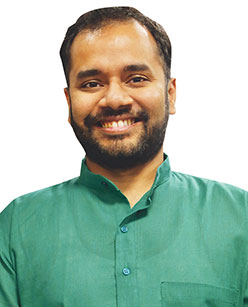These are exciting, even euphoric times for India’s youth. Never before have the opportunities been so many, the horizon so close. Yet they need to understand the enormous challenges ahead in terms of politics, society, and their utter lack of preparation
By Robin Keshaw
JACK Ma, founder of Chinese e-commerce giant Alibaba, in an interview with Charlie Rose, spoke about the role of young people in creating value for the future. He said emphatically: “My father did a better job than my grandfather. I did a better job than my father. And I am sure, my kids are going to do a better job than me. Nobody can stop it.”
India today has the potential of emerging as an economic superpower. At least two generations of its people have reached their prime and then passed on the baton to the next generation.
In that sense, 2019 is going to be the year of reckoning for millennium kids, the ones born in the 1990s and the intervening years. If Jack Ma is to be believed, this lot would do a better job than previous torch-bearers. The theory of accelerating returns shall make the task easier.
But one needs to be fairly credulous to buy such optimistic arguments. Until and unless we analyze the current context and set the correct agenda for the following year, things are not going to get as rosy as we would like to believe.
Words like growth, progress, development have diverse ramifications and everyone, youth all the more, needs to examine these minutely to set the correct course for an incredible India. Let’s try and figure out the Ordre du jour for Gen Y.
POLITICAL INVESTMENT
Gen Y has been witness to recent political developments that could be the prelude to the politics of the future. Modi and Kejriwal’s brand of politics has drawn many youths into the political arena.
Thousands rallied behind these leaders to realize political change. But is the youth participation going to remain limited to electoral politics or are they ready for the long haul?
Abinav Singhal recently returned from the US after completing his Masters in Public Policy at the University of Texas-Austin. In his view: “This is not a repeat telecast of Total Revolution or anti-reservation protests of the 90s, when students were misused for electoral gains.
The political awareness has spilled out of college campuses to office spaces, glass buildings and green fields. Youth have much higher stakes in politics now.” Singhal has launched an advisory firm for political parties.

Gen Y has been witness to recent political developments that could be the prelude to the politics of the future. Modi and Kejriwal’s brand of politics has drawn many youths into the political arena.
If the recent UP panchayat elections are any indication, where young graduates, both men and women in their early twenties defeated political stalwarts, Singhal is absolutely right. Young India has upped its ante in politics.
The December 16 protests, anti-corruption movement, etc led to a wedding of sorts between social issues and politics, and young people played the roles of matchmaker. The same youth that had conditioned themselves into believing that politics is to be avoided, have now realized that political participation is a sine qua non for the nation’s development.
RTI, RTE, Jan lokpal etc are not just about politics, it is about the political capital that Gen Y needs to invest to draw suitable returns in the future. These are long term investments. In the coming year, it would require a lot of foresight on the part of Gen Y to change the country’s political climate.
A political hotbed like India cannot be seen through the lens of narrow mindedness and short term gain. Young India would need to chart out realistic vision and goals for the polity and that won’t be easy.
I am reminded of a Chinese proverb: “If you keep doing what you’ve always done, you’ll keep getting what you’ve always got.” Our political history had been deeply mired in the politics of identity and ideology. This has led to a kind of partisanship where consensus is also difficult to arrive at.
This needs to change. Gen Y would need to shift its focus to issue based politics, where each issue is examined on benchmarks of development, human, social and economic, and not through the myopic prism of political affiliations.
CHALLENGE-OPPORTUNITY PARADIGM
One of the common threads that bound together the Arab Spring in Egypt and Tunisia was unemployment. One would be extremely cynical to lump India with the Arab world, or Africa or Easern Europe but sample this: The Labour Department’s Annual Employment and Unemployment Report for 2013-14 puts the unemployment rate for young graduates (18-29 years) at 28 per cent.
India adds around 13 million people every year to the workforce. Even though the Labour Force Participation Rate is quite low at 52.5 percent, the number of job-seekers is staggering.
Check out some other statistics. Indian startups created 80,000 jobs in 2014-15. Around 72 per cent of the startup founders are less than 35 years of age, making India the youngest startup nation in the world. But these numbers don’t stand a chance against the unemployment numbers mentioned above although there is a silver lining.
Job creation has been Prime Minister Modi’s main agenda. It is the reason why he launched initiatives like Digital India, Make in India, Pradhan Mantri Kaushal Vikas Yojana. When he declared “Start up India, Stand up India” from the ramparts of the Red Fort on Independence Day, he had serious business in mind.
The government is providing tax breaks to startups, it is fostering incubation centres and simplified the approval process for new projects. In the pipeline is a Bankruptcy law and changes in Intellectual Property laws to enable a better environment for startups.
India never suffered from lack of great ideas, what was lacking was strong, collective will for implementation. With government pushing the reforms, it is an ideal scenario for Gen Y to leverage the situation. The huge domestic market is going to make it a lot easier to experiment with ideas.
Gen Y must shed the inhibitions and insecurities which plagued earlier generations, and demonstrate the entrepreneurial spirit. It is the perfect time to fail in India, and learn from the failures to bounce back.

Babasaheb Ambedkar’s warning rings no less true today. For long, India has been a crucible for forging concrete social identities, which has done us more harm than good.
Along with this risk-taking attitude, young entrepreneurs also need a value-based approach to foster creativity, innovation and strong culture in their organizations. Revenue generation and profit making are definitely important objectives, but should not be the most important ones.
If we look at the history of successful organizations across the world, the ones with strong vision and values stand out. Young entrepreneurs need to replicate such successes here as well, to create a long lasting impact.
SOCIAL IDENTITIES & INEQUALITY
“On the 26th of January 1950, we are going to enter into a life of contradictions. In the politics we will have equality and in social and economic life we will have inequality. We will be recognizing the principle of one man one vote and one vote one value. In our social and economic life, we shall, by reason of our social and economic structure, continue to deny the principle of one man one value.
How long shall we continue to live this life of contradictions? How long shall we continue to deny equality in our social and economic life? If we continue to deny it for long, we will do so only by putting our political democracy in peril.”
Babasaheb Ambedkar’s warning rings no less true today. For long, India has been a crucible for forging concrete social identities, which has done us more harm than good. Our personal and social insecurities have led us towards social alliances.
Our social milieu has been so compartmentalized that we always seek the compartments which are built around our social identities, be it gender-based, caste-based, religion-based etc. In the process, we seem to make some personal progress but at the cost of social prosperity.
Similar observations have been made about economic inequality. Recent research by Angus Deaton, Thomas Piketty and Abhijit Banerjee has clearly shown the social as well as economic costs of inequality, especially in the context of India. How does young India perceive inequality?
“There is no clear pattern”, observes Vandana Agarwal, a career counsellor in a Delhi-based firm. “For a sizeable portion of urban youth, who have studied in public schools and have remained alienated from rural or semi-urban life, inequality doesn’t exist.
But there are many more who endorse the egalitarian view of society and are actively working to root out inequality. My optimistic side wants to believe that the numbers of the latter are increasing day by day.”
Gen Y would do itself a lot of good in proving Vandana right and not just because of the Utopian ‘God-has-made-us-equal’ view. In a very pragmatic sense, our social surroundings are impacting on our personal lives in more direct ways.
The more turbulent it becomes, the more opportunity cost it would incur in our lives. Of course, we would have to forego a lot of choices we have been accustomed to. But this should not stop Gen Y from making the right choice for the future.
SENSE OF ENTITLEMENT
For our parents’ generation, financial stability and a secure career was their topmost priority. They did all the hard work to create a problem-free environment at home and made us believe that we are special and destined to do big things in life.
Somewhere in this process, the role of sincere effort and hard work got diluted and created a sense of entitlement in us. Our generation started believing that we are so awesome; we deserve a degree of respect and recognition irrespective of how much actual work we do.
Many of the problems with our generation, as perceived by elders, can be traced back to such distorted perceptions. We tend to be strongly opinionated, intolerant of the perspective of others and inclined towards unethical shortcuts. When there is a huge difference between our sense of identity and socially perceived identity, it leads to frustration, which has much wider ramifications.
Paul Harvey, assistant professor of management at the University of New Hampshire, conducted some research at the workplace to understand this new sense of entitlement among the younger generation. He said: “Managers have reported a lot of problems associated with this – primarily that these employees have unrealistic expectations and a strong resistance toward accepting negative feedback.
Entitlement involves having an inflated view of oneself, and managers are finding that younger employees are often very resistant to anything that doesn’t involve praise and rewards.”

Many of the problems with our generation, as perceived by elders, can be traced back to such distorted perceptions.
Indian youth need to understand that identities are not created through Facebook posts or tweets. It takes blood, sweat and toil to build an identity. It requires a lot of effort and any digression from the path of hard work leaves gaps that are difficult to plug later.
No one owes us anything; respect and recognition are earned through perseverance and persistence. As we try to bring reality and expectations closer, our life would be much simpler and more satisfying.
PATH TO SELF-DISCOVERY
Young India must tread its travel plans for the New Year. If travel blog posts and Instagram pictures are any indications, travelling is the latest craze for Gen Y. With each passing day, new bucket lists are being created, new destinations are being explored. As the saying goes, “To travel is to take a journey within oneself,” and Gen Y is increasingly taking the path to self-discovery.
As we meet new people, visit new places, understand different cultures and shatter our comfort zones, we realize that the world is far more beautiful and diverse than our opinions and egos. We, our thoughts, our exaggerated opinions, are minor against the vast expanse of nature.
The whirlpool of emotions and self-questioning settles to give an inner peace, which calms all the noise out there in the world. As India’s youth prepare to pack their bags for travel, allow you to tread on a path of self-awareness and enjoy the beauty within.
Let me end with these lines from author Bill Bullard, one wonders if he was reflecting on India’s youth when he wrote them: “Opinion is really the lowest form of knowledge. It requires no accountability, no understanding. The highest form of knowledge is empathy, for it requires us to suspend our egos and live in another world. It requires profound purpose larger than the self-kind of understanding.”
